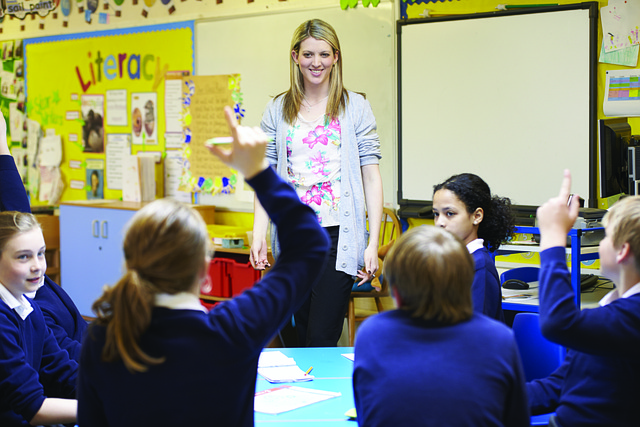We are London's global lifelong learning institution
Our Teacher training programme is designed to elevate your teaching using innovative techniques for greater student success. Our pedagogy includes Bridge 21, Flipped Classroom, and Team-Based Learning to enhance teaching outcomes and proficiency in 21st-century teaching and learning.
Register
Designed for educators aiming to excel in the Cambridge Primary and Lower Secondary curriculum specialising on STEM pedagogy, our programme equips teachers with the latest methodologies to enhance student learning outcomes and long-term success in academic and career pursuits. Our tailored approach empowers teachers to create dynamic, student-centred learning environments, driving engagement and improving performance across key subjects..
Our training helps educators inspire a love for learning in science, technology, and mathematics. By mastering these methodologies, teachers can cultivate students’ analytical skills, creativity, and preparedness for future challenges in an increasingly tech-driven world.
We use the Cambridge Primary testing structure to design assessments tailored to local contexts. Our training emphasises formative feedback and clear standards, enabling educators to effectively support individual learners’ growth.
All our trainers have a strong Cambridge background and extensive experience teaching in the UK, acting as educators well-versed in the Cambridge curriculum. As native speakers, they provide valuable language support, enabling trainees to teach students effectively.

"Thinking and Working Mathematically" encourages collaborative problem-solving and higher-order thinking, enabling learners to connect facts, procedures, and concepts. The curriculum encompasses three strands—number, Geometry and Measure, and Statistics and Probability—while providing teachers with adaptable resources, assessment materials, training, and comprehensive guidance for effective instruction.

Organised into six strands—Biology, Chemistry, Physics, Earth and Space, Thinking and Working Scientifically, and Science in Context—this comprehensive approach empowers teachers to connect science with real-world applications, such as sustainability. By relating science to everyday life, educators foster students' understanding and enthusiasm, preparing them for future success in science.

Learning how students can participate in hands-on activities, including programming animations and quizzes, to understand computing concepts better. Teachers are provided with resources such as Scratch code extracts and task-based learning materials to reinforce essential principles.

Trainees will engage with various texts, including fiction, poetry, and non-fiction, exposing them to different communication styles and contexts. This program enhances their ability to communicate effectively and confidently in everyday situations while also instilling critical thinking and creative expression skills in students.
Accurately measuring a student’s potential and progress can transform learning, enabling educators to make informed decisions about individual learners and their educational needs. Our training design utilises the Cambridge Primary testing structure to assess learner performance and provide meaningful progress reports to students and parents.
Our six-week programme includes 12 live online classes, with two sessions per week totalling 24 hours. Sessions are led by professionals experienced in the Cambridge curriculum, and class coordinator assistance is available.
Our live and virtual classes feature real-time interaction with teachers, who address trainees' queries. Recorded sessions are available for those who miss classes, along with an assessment submission portal and coordinator support.
Our live and virtual classes feature real-time interaction with teachers who address trainees' queries. Recorded sessions, an assessment submission portal, and coordinator support are available for those who miss classes.

We offer specialised programs for schools and educational institutions, focusing on curriculum localisation to meet regional needs. Our custom training batch ensures that trainees receive relevant examples and methodologies suited to country-specific learning contexts.
Get in touch!CERT IS training covers the progression of learning outcomes from primary to lower secondary. For English, it starts with basic literacy and communication skills in primary and builds toward critical thinking and analytical skills in lower secondary. Math instruction progresses from fundamental arithmetic to more complex concepts like algebra and geometry. In Science, teachers learn to guide students from understanding basic scientific concepts to conducting experiments and drawing conclusions.
CERT IS training covers the progression of learning outcomes from primary to lower secondary. For English, it starts with basic literacy and communication skills in primary and builds toward critical thinking and analytical skills in lower secondary. Math instruction progresses from fundamental arithmetic to more complex concepts like algebra and geometry. In Science, teachers learn to guide students from understanding basic scientific concepts to conducting experiments and drawing conclusions.
CERT IS provides training on both formative and summative assessments tailored to each subject. Teachers are encouraged to use formative assessments like quizzes, hands-on tasks, and group discussions for ongoing feedback. Summative assessments, such as unit tests and projects, measure cumulative understanding and application in each subject, and teachers learn how to analyse results to guide future instruction.
CERT IS provides access to various resources, including curriculum guides, lesson planning templates, and digital learning tools. The program also introduces instructional strategies suited to Cambridge standards, such as differentiation, inquiry-based learning in Science, and problem-solving activities in Math. Teachers receive training in using these resources to engage students effectively and meet varied learning needs.
CERT IS includes subject-specific workshops, online modules, and mentoring, focusing on best practices in delivering Cambridge English, Math, and Science curricula. Training covers classroom management, curriculum adaptation, and assessment techniques tailored to British international school contexts. Teachers also learn strategies for integrating critical thinking and collaboration into their lessons.
The program emphasises differentiation techniques for each subject area. Teachers learn to adapt instruction with tiered assignments, scaffolded tasks, and group activities. English teachers, for instance, might use reading circles, while Math teachers focus on individualised problem-solving tasks. Science teachers are encouraged to design experiments accommodating different learning paces and abilities.
CERT IS the key skills students need for each stage, preparing teachers to help students transition from primary to lower secondary levels and eventually to upper secondary. By building foundational knowledge and skills in English, Math, and Science, teachers are prepared to help students succeed in advanced levels, including IGCSE and A-Levels, by fostering critical thinking and analytical skills.
CERT IS provides a structured onboarding experience for new teachers, including introductory modules, workshops, and a mentoring program. Teachers receive step-by-step guidance on implementing Cambridge standards, using instructional materials, and understanding curriculum expectations. This support is especially helpful for teachers transitioning from different educational systems or new to the British international school context.
Please subscribe. You can update your preferences or unsubscribe at any time.

